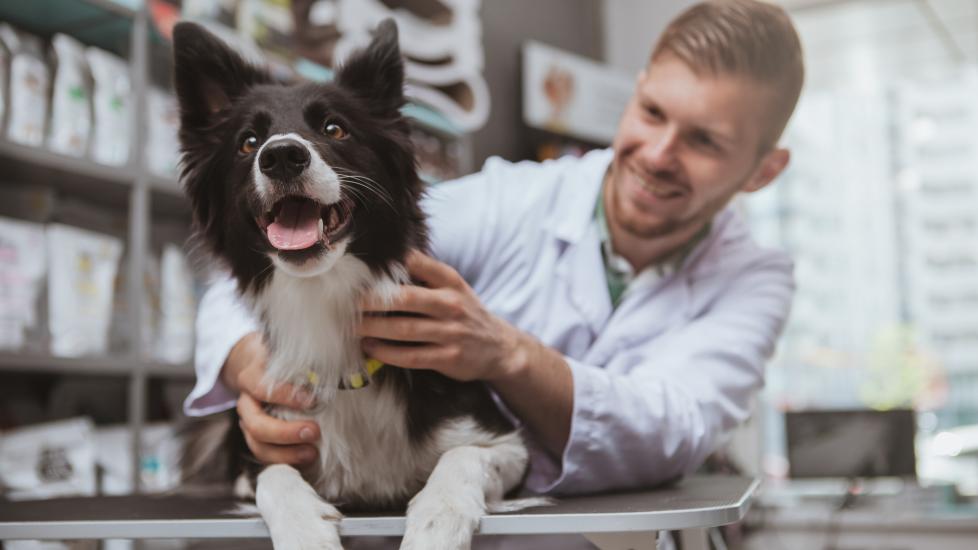Difloxacin for Dogs
PetMD’s medications content was written and reviewed by veterinary professionals to answer your most common questions about how medications function, their side effects, and what species they are prescribed for. This content shouldn’t take the place of advice by your vet.
What Is Difloxacin for Dogs?
Difloxacin (brand name Dicural®) is a veterinary prescription antibiotic that is FDA-approved for use in dogs for the treatment of certain susceptible bacterial infections such as bladder infections, kidney infections, respiratory tract infections, and skin infections. Difloxacin is not used in cats, as safety studies have not been performed in this species.
It is important to note that difloxacin can cause abnormal cartilage development in young, growing animals. Speak with your veterinarian about whether your pet is still in their growth stage.
In certain circumstances, your vet may recommend a compounded formulation of difloxacin. Compounded medications are prescribed if there’s a specific reason your pet’s health can’t be managed by an FDA-approved drug, such as if your pet has trouble taking pills in capsule form, the dosage strength is not commercially available, or the pet is allergic to an ingredient in the FDA-approved medication.
Compounded medications are not FDA-approved. They are created by either a veterinarian or a licensed pharmacist on an individual basis to best suit a patient’s particular needs. You can learn more about compounded medications here.
Difloxacin Considerations for Dogs
Difloxacin should not be used in pets with certain medical conditions such as seizures, or in pets that are sensitive to this medication or other medications categorized in the same antibiotic drug class. Administering difloxacin with certain medications can result in health risks to your pet, so it is important to discuss your pet’s medications, including vitamins and supplements, and medical conditions with your veterinarian.
How Difloxacin Works in Dogs
Difloxacin is classified as a fluoroquinolone antibiotic. Difloxacin works by disrupting DNA formation in susceptible bacteria during the replication process, thereby preventing bacteria from growing and multiplying.
Difloxacin Directions for Dogs
Follow the directions on the drug label or as provided by your veterinarian. Your veterinarian may recommend providing your pet with plenty of water when they are taking difloxacin.
Fluoroquinolones are generally absorbed best if given on an empty stomach. If your pet experiences signs of an upset stomach such as vomiting or refusing to eat after taking difloxacin, subsequent doses may be given with a small amount of food.
Due to the possibility of abnormal cartilage development, do not give this medication to growing puppies.
Do not use this medication in cats, as safety studies have not been performed in this species.
Missed a Dose?
Speak with your veterinarian about what to do if you forget to give a dose of difloxacin. Generally, they may instruct you to give it when you remember, or if it is almost time for your pet’s next dose, to skip the missed dose and resume your normal dosing schedule. Do not give extra or double doses.
Difloxacin Possible Side Effects in Dogs
Possible side effects of difloxacin may include:
-
Nausea
-
Vomiting
-
Diarrhea
-
Loss of appetite
-
Lethargy
-
Neurological symptoms such as seizures, especially in dogs with kidney failure
Human Side Effects
Difloxacin is a prescription veterinary medication not intended for use in humans.
If you accidentally ingest this medication, call your physician, seek medical care, or call the national Poison Control Center hotline at 800-222-1222.
Call Your Vet If:
-
Severe side effects are seen (see above)
-
Your pet’s condition worsens or does not improve with treatment
-
You see or suspect an overdose
-
You have additional questions or concerns about the use of difloxacin
Difloxacin Overdose Information in Dogs
Symptoms of an overdose of difloxacin may include gastrointestinal upset (vomiting, diarrhea, loss of appetite) and neurological symptoms such as seizures.
If you suspect an overdose, immediately contact your veterinarian, seek emergency veterinary care, or call an animal poison control center. Consultation fees often apply.
Pet Poison Helpline (855) 764-7661
ASPCA Animal Poison Control (888) 426-4435
Difloxacin Storage for Dogs
Always confirm storage requirements by reading the prescription label. Compounded medications should be stored according to the compounding pharmacy’s label.
Keep the container tightly closed in order to protect the medicine from moisture and light. Keep out of reach of children and pets.
Difloxacin for Dogs FAQs
What is difloxacin used for in treatment of dogs?
Difloxacin is used in dogs for the treatment of certain susceptible bacterial infections affecting the bladder, kidneys, respiratory tract, and skin.
No vet writer or qualified reviewer has received any compensation from the manufacturer of the medication as part of creating this article. All content contained in this article is sourced from public sources or the manufacturer.
Featured Image: Oleksandra Polishchuk/iStock via Getty Images Plus
References
Papich, MG. “Difloxacin Hydrochloride." Saunders Handbook of Veterinary Drugs (Fourth Edition), W.B. Saunders, 2016, pp. 238–239.
